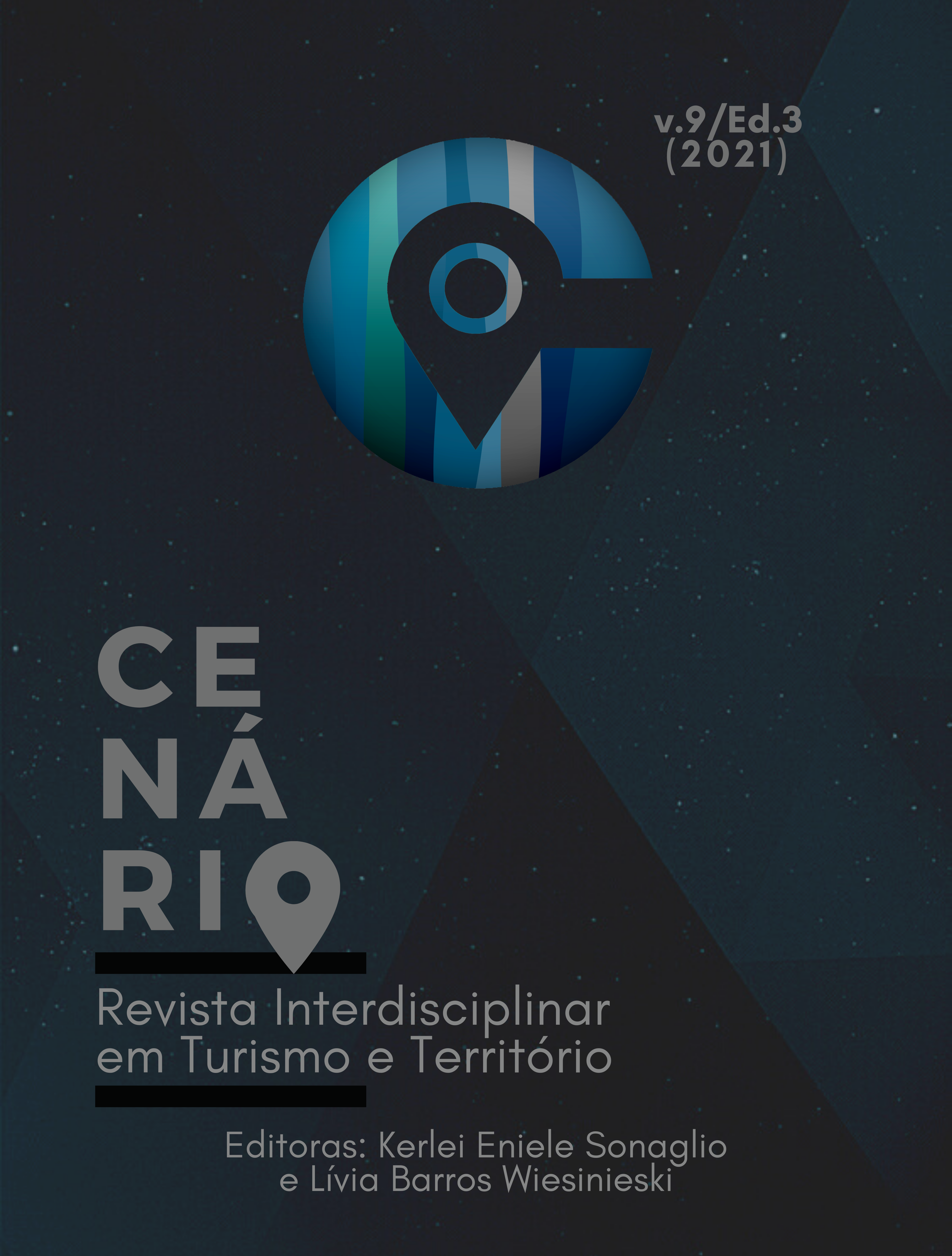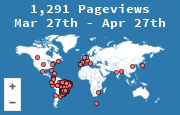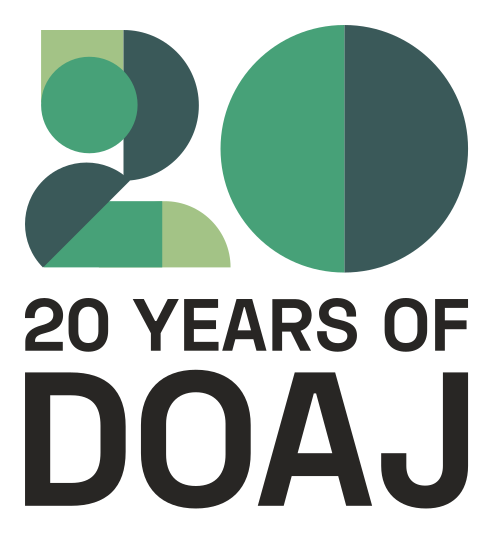Tourism and Contemporary Trends
Women as solo travelers
DOI:
https://doi.org/10.26512/revistacenario.v9i3.35690Keywords:
segmentação turística, motivações, turismo solo, mulherAbstract
This study investigates whether the search for women for solo travel is already characterized as a tourist segment in Brazil. The research is exploratory-descriptive with a qualitative and quantitative approach, and its general objective was to analyze the growth in the number of women traveling solo in the Brazilian territory. 454 questionnaires were applied to women over 18 years old, who had already traveled at least one trip alone in the country. The results demonstrated that the solo traveler is already seen as a growing segment, evidenced even by the emergence of specific service agencies and platforms. It was observed that Brazilian destinations are not prepared to receive women who travel alone, and the high rates of violence against women and the lack of public security in the country influence the decision to travel alone.
Downloads
References
Booking.Com (2019). Mulheres pelo mundo: Um guia para viajar em sua própria companhia. Brasil. Brasil: Booking.com
Brasil, Ministério do Turismo. (2017). Sondagem do Consumidor: Intenção de Viagem. (Vol.1). Brasil: Fundação Getúlio Vargas
Brasil, Ministério do Turismo. (2010). Segmentação do Turismo e o Mercado. (1a ed) [Versão digital]. Ministério do Turismo. Recuperado de http://biblioteca.facha.edu.br/index.php?view=weblink&catid=22%3Ae-books- de-turismo&id=490%3A2017-02-16-18-32-50&option=com_weblinks
Costa, C., Brandão, F., Costa, R. & Breda, Z. (2014). Turismo nos Países lusófonos: conhecimento, estratégia e territórios. (Vol. I). Portugal: Editora Escolar.
Crompton, J. L. (1979). Motivations for pleasure vacation. Annals of Tourism Research, 6(4), 408”“424. doi: https://doi.org/10.1016/0160-7383(79)90004-5
Elsrud T. (1998). Time creation in travelling: The taking and making of time among women backpackers. Time and Society, 7 (2), 309-334. doi: https://doi.org/10.1177/0961463X98007002008
Gibson, H., & Jordan, F. (1998). Travelling solo: A cross-cultural study of British and American women aged 30-50. In Fourth International Conference of the Leisure Studies Association. Leeds, Inglaterra: International Conference of the Leisure Studies Association
Gilmartin, P. (1997). The dangers of independent travel: A century of advice for 'lady travellers'. Journal of Interdisciplinary Gender Studies, 2(1), 1-13. Recuperado de: https://nova.newcastle.edu.au/vital/access/manager/Repository/uon:15045
Jordan, F & Gibson, H. (2005). We're not stupid... but we'll not stay home either': Experiences of solo women travellers. Tourism Review International, 9. 195-211. doi: 10.3727/154427205774791663.
Laesser, C., Beritelli, P., & Bieger, T. (2009). Solo Travel: Explorative Insights from a Mature Market (Switzerland). Journal of Vacation Marketing, 3, 217”“227.
doi: https://doi.org/10.1177/1356766709104268
Maxmilhas. (2019). O mundo é delas: as mulheres viajam sozinhas e isso é cada vez mais comum. Maxmilhas. Recuperado de: https://www.maxmilhas.com.br/blog/dicas-de-viagem/o-mundo-e-delas-as-mulheres-viajam-sozinhas-e-isso-e-cada-vez-mais-comum
Moesch, M., & Beni, M. (2015). Do discurso sobre a ciência do turismo para a ciência do turismo. In XIV Seminário Da Associação Nacional Pesquisa e Pós-Graduação Em Turismo, 9”“30. Balneário Camboriú, SC/Brasil: ANPTUR
Moraes, C. C. de A. (2011). Turismo Single: Revisando o Segmento de Mercado. In VIII Seminário Da Associação Nacional Pesquisa e Pós-Graduação Em Turismo, 1”“12. Balneário Camboriú, SC/Brasil: ANPTUR
Pearce, P.L. (1988). The Ulysses factor: Evaluating visitors in tourist settings. Estados Unidos da América: Springer-Verlag
Pereira, G. de A., & Gosling, M. (2019). Push and pull motivations of Brazilian travel lovers. Brazilian Business Review, 16(1), 63”“86.
doi: https://doi.org/10.15728/bbr.2019.16.1.5
Pereira, A., & Silva, C. (2018). Women solo travellers: motivations and experiences. Millenium - Journal of Education, Technologies, and Health, 2(6), 99”“106.
doi: https://doi.org/10.29352/mill0206.09.00165
Plog, S. C. (1974). Why Destination Areas Rise and Fall in Popularity. Cornell Hotel and Restaurant Administration Quarterly, 14(4), 55”“58.
doi: https://doi.org/10.1177/001088047401400409
Riley P. J. (1988). Road culture of international long-term budget travelers. Annals of Tourism Research, 15, 313-328. doi: https://doi.org/10.1177/004728758902700363
Robinson, J. (1990). Wayward women: A guide to women travellers. Oxford: Oxford University Press.
Sampaio, C. A. C. (2007). Turismo como fenômeno humano: princípios para pensar a ecossocioeconomia do turismo e sua prática sob a denominação turismo comunitário. Revista Turismo Em Análise, 18(2), 148.
doi: https://doi.org/10.11606/issn.1984- 4867.v18i2p148-165
Sebrae. (2019). Boletim de Tendências Turismo. Sebrae. Recuperado de: https://atendimento.sebrae- sc.com.br/inteligencia/boletim-de-tendencia/turismo-para-mulheres-conheca-e-aposte- nessa-tendencia
Silva, C. (2011). A Imagem de Destinos Turísticos de Montanha pelos Residentes e Turistas. (Tese de Doutorado). University of Aveiro, Portugal.
Souza, T. (2018). Mulheres que viajam sozinhas: Fatores restritivos. Cadernos Discentes: Trabalhos de Iniciação Científica do Curso de Turismo, 3, 79-97. Recuperado de: http://www.fth.uff.br/images/cadernos/cadernos3.pdf
Terra. (2019). Estudo mostra que as mulheres representam 60% dos intercambistas brasileiros. Terra. Recuperado de: https://www.terra.com.br/noticias/dino/estudo-mostra-que-as-mulheres-representam-60-dos-intercambistas-brasileiros,2de3f002e5d8d412043e7addfc8e0b86b1fcx5sk.html
Valaja, E. (2018). Solo Female Travellers’ Risk Perceptions and Risk Reduction Strategies-As Expressed in Online Travel Blog Narratives (Dissertação de Mestrado). Department of Service Management and Service Studies. Recuperado de: http://lup.lub.lu.se/student-papers/record/8947243
Wilson, E. C. (2004). A journey of her own?: The impact of constraints on women’s solo travel. Department of Tourism, Leisure, Hotel and Sports Management, Submitted. doi: https://doi.org/10.25904/1912/3676
Wilson, E., & Harris, C. (2006). Meaningful travel: Women, independent travel and the search for self and meaning. School of Tourism and Hospitality Management Papers, 54(2), 161”“ 172. Recuperado de: https://www.researchgate.net/publication/37358209_Meaningful_travel_Women_independent_travel_and_the_search_for_self_and_meaning
Downloads
Published
How to Cite
Issue
Section
License
Copyright (c) 2021 Cenário: Revista Interdisciplinar em Turismo e Território

This work is licensed under a Creative Commons Attribution-NonCommercial-NoDerivatives 4.0 International License.
1. Proposta de Política para Periódicos de Acesso Livre
Autores que publicam nesta revista concordam com os seguintes termos:
Autores mantém os direitos autorais e concedem a revista o direito de primeira publicação, sendo o trabalho simultaneamente licenciado sob a Creative Commons Attribution License o que permite o compartilhamento do trabalho com reconhecimento da autoria do trabalho e publicação inicial nesta revista.
A contribuição é original e inédita, e não está sendo avaliada para publicação por outra revista.
Autores cedem os direitos de autor do trabalho que ora apresentam a apreciação do Conselho Editorial da Revista Cenário, que poderá veicular o artigo na Revista Cenário e em bases de dados públicas e privadas, no Brasil e no exterior.
Autores declaram que são integralmente responsáveis pela totalidade do conteúdo da contribuição que ora submetem ao Conselho Editorial da Revista Cenário.
Autores declaram que não há conflito de interesse que possa interferir na imparcialidade dos trabalhos científico apresentados ao Conselho Editorial da Revista Cenário.
Autores têm autorização para assumir contratos adicionais separadamente, para distribuição não-exclusiva da versão do trabalho publicada nesta revista (ex.: publicar em repositório institucional ou como capítulo de livro), com reconhecimento de autoria e publicação inicial nesta revista.
Autores têm permissão e são estimulados a publicar e distribuir seu trabalho online (ex.: em repositórios institucionais ou na sua página pessoal) a qualquer ponto antes ou durante o processo editorial, já que isso pode gerar alterações produtivas, bem como aumentar o impacto e a citação do trabalho publicado.











